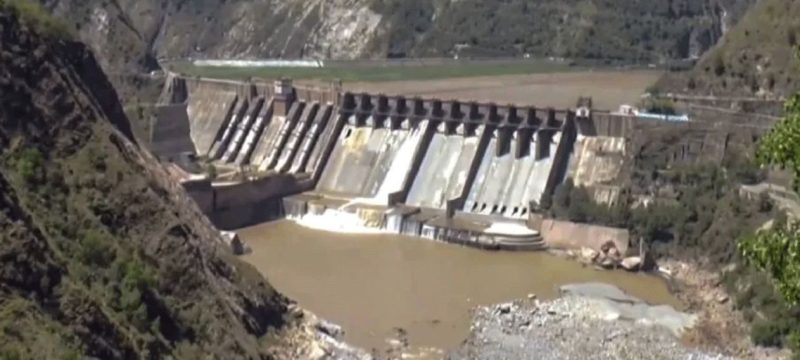India has significantly reduced water discharge from the Baglihar Dam on the Chenab River, triggering alarm in Pakistan over an impending water shortage in regions like Punjab and Azad Jammu and Kashmir.
This reduction follows India’s suspension of the Indus Waters Treaty (IWT), a move that has deepened tensions between the two nuclear neighbors. Officials from Pakistan’s Irrigation Department report a sharp decline in the water inflow at Head Marala, dropping from 87,000 to just 10,800 cusecs within a day, raising serious concerns about irrigation and potable water shortages.
Read more: Indian Army Conducts Full Blackout Drill in Ferozepur Cantonment Amid Rising Tensions at Border
Indian media sources also suggest that India plans to stop releasing water from the Kishanganga Dam, which feeds into the Jhelum River—posing an even greater risk to water availability in already stressed northern Pakistani regions.
These developments are part of a broader series of aggressive steps taken by New Delhi, including the expulsion of Pakistani diplomats, the cancellation of visas, and the abandonment of key obligations under the 1960 Indus Waters Treaty.
Tensions escalated further following the April 22 Pahalgam attack that killed Indian tourists—a tragedy India attributes to Pakistani-based militant groups, a charge Pakistan vehemently denies.
In response, Pakistan’s National Security Committee (NSC) has labeled India’s actions as “water terrorism,” warning that blocking Pakistan’s lawful access to water under international treaties would be interpreted as an act of war.
“Water is vital to Pakistan’s survival. Any unilateral disruption of river flow violates international agreements and jeopardizes regional peace,” stated the NSC after an emergency meeting chaired by Prime Minister Shehbaz Sharif.
In retaliation, Pakistan has decided to cap India’s diplomatic mission in Islamabad at 30 staff members and plans to take the dispute to global platforms including the United Nations.
India, meanwhile, insists that its actions are legal, asserting that the suspension of the treaty grants it full discretion over river resources. Indian authorities claim maintenance work on the Kishanganga Dam justifies the temporary halting of downstream flows, though no timeline was provided.
Diplomatic experts are increasingly concerned over the rapid deterioration in India-Pakistan relations, especially following Pakistan’s recent ballistic missile test—a development that coincided with India’s river restrictions.
Calls for restraint have come from international actors like UN Secretary-General António Guterres and the U.S. State Department, both urging the two sides to engage in dialogue and avoid further escalation. However, New Delhi has shown no signs of reconsidering its recent decisions.
The Indus Waters Treaty, brokered by the World Bank in 1960, has long been hailed as a landmark in transboundary water cooperation. Under its terms, Pakistan controls the Indus, Jhelum, and Chenab rivers, while India has rights to the Ravi, Sutlej, and Beas. India’s suspension of the treaty is a historic breach that now casts doubt on the region’s water security.
Environmentalists warn that the situation could lead to dire humanitarian outcomes. “Agriculture in Punjab depends heavily on canal irrigation from the Chenab and Jhelum. Interruptions in water flow could be devastating,” said Dr. Saima Qureshi of the Pakistan Council of Research in Water Resources.









